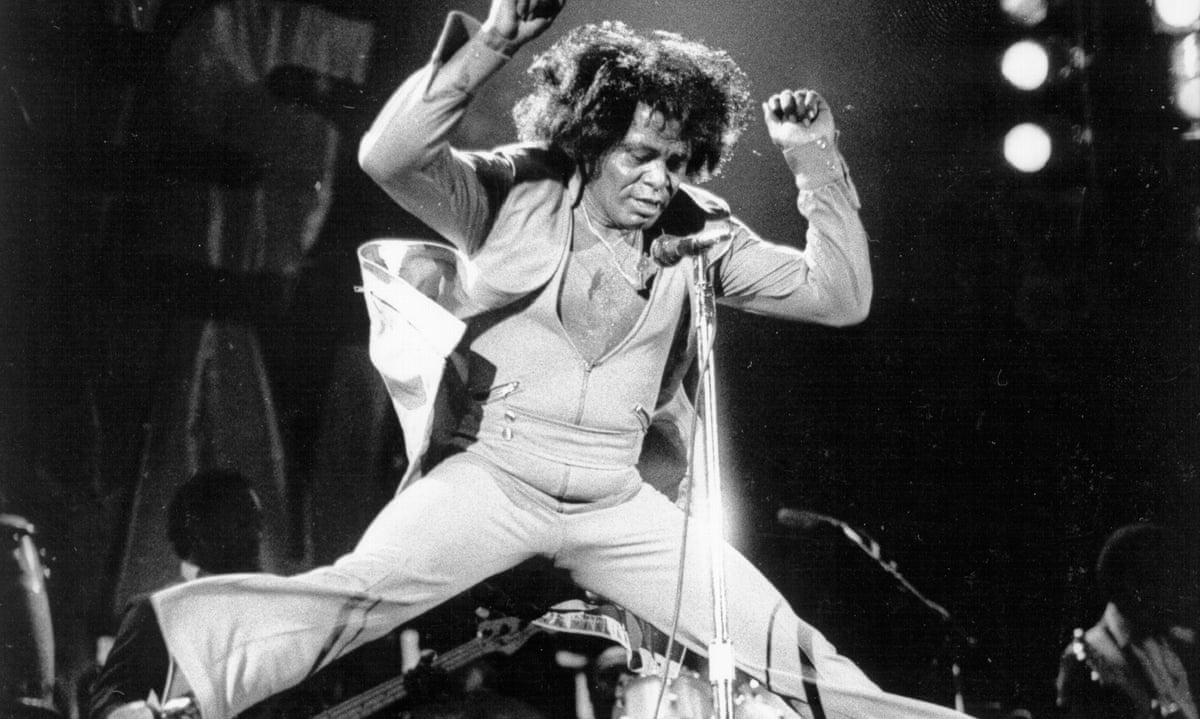
Photo- David Corio/Getty Images
The Legendary Legacy of James Brown: The Godfather of Soul
James Brown’s influence on music and culture transcends generations, genres, and even politics.
9 October 2024
Dubbed the "Godfather of Soul," Brown’s music redefined rhythm and blues and also laid the groundwork for funk which further influenced the birth of hip-hop, and inspired countless artists across multiple genres. His electrifying performances, signature grooves, and unwavering sense of showmanship made him one of the most influential figures in funk history. With a career that spanned over five decades, Brown's legacy remains an indelible mark on the landscape of popular music.
Born in 1933 in Barnwell, South Carolina, James Brown grew up in poverty, often taking on odd jobs to make ends meet. His early experiences shaped his character and music, infusing it with a sense of grit and determination that would help him define his career. From his youth, Brown had a natural gift for performing, and in the 1950s, he got his first taste of professional music with The Famous Flames.
Their hit "Please, Please, Please" in 1956 marked the beginning of Brown's rise to stardom. His pleading delivery on the track captivated audiences and set the stage for what would become a career built on high-energy performances and a deep connection to the emotional core of music. He quickly earned a reputation as a relentless performer, and his concerts became legendary, with sweat-soaked shows often lasting for hours.
Brown’s true genius lay in his ability to blend genres and create entirely new sounds. While deeply rooted in rhythm and blues, he soon began experimenting with rhythm-heavy, syncopated beats and minimalistic arrangements that would eventually evolve into the genre we now know as funk. His 1965 hit "Papa’s Got a Brand New Bag" is often credited as one of the first funk songs, characterized by its rhythmic intensity and a focus on the groove rather than traditional melodies.
With tracks like "I Got You (I Feel Good)," "Cold Sweat," and "Get Up (I Feel Like Being a) Sex Machine," Brown pioneered funk music by stripping down the instrumentation and focusing on rhythm, transforming the role of each instrument in his band. The drums and bass became the driving force of his music, with sharp horn sections and call-and-response vocals adding layers of intensity. Brown’s band, the J.B.’s, featuring notable musicians like Bootsy Collins, played a key role in shaping this distinctive sound.
One of the cornerstones of James Brown’s enduring legacy is his unmatched stage presence. He was more than just a singer—he was a performer in the truest sense. His energetic dance moves, from the splits to his signature "cape routine" (where he would dramatically collapse on stage, only to be "revived" by a cape), created a sense of drama and excitement in every performance. Brown's shows were a full-body experience, immersing his audiences in the sound, rhythm, and energy that radiated from the stage.
His live album Live at the Apollo (1963) is often hailed as one of the greatest live recordings in music history, perfectly capturing the magic and charisma of Brown’s live performances. It was also a turning point for live albums in general, showcasing that a performance recording could be as impactful as a studio album. For Brown, the stage was where he truly came alive, and his influence can be seen in countless performers, from Michael Jackson to Prince, who emulated his high-octane performances and showmanship.
Beyond his contributions to music, James Brown became a symbol of empowerment for the African American community during the civil rights movement. His song "Say It Loud – I’m Black and I’m Proud" (1968) became an anthem for Black pride, reinforcing messages of self-respect, empowerment, and social justice at a time when the country was grappling with intense racial tensions.
Brown's influence extended beyond music and performance into activism, using his platform to support the movement for equality and justice. His messages of pride and perseverance resonated with many, and he became a beloved figure not just for his music but for his role in advancing social change.
James Brown’s music has left an indelible imprint on future generations of artists. As the "Godfather of Funk," his influence is heard in the grooves of everyone from George Clinton and Parliament-Funkadelic to Prince. His groundbreaking rhythms and vocal stylings also had a profound impact on the development of hip-hop, where countless artists have sampled his beats and grooves in their tracks. Songs like "Funky Drummer" and "The Payback" have become some of the most sampled tracks in hip-hop history, influencing artists like Public Enemy, Dr. Dre, and Kanye West.
Brown’s contributions didn’t stop with funk and hip-hop. His approach to rhythm and his emphasis on the groove can also be traced in genres like rock, pop, and R&B. Artists like Mick Jagger, David Bowie, and Bruno Mars have all cited James Brown as a significant influence on their work, pointing to his innovative sound, dynamic performances, and commitment to his craft.
James Brown’s career is a testament to the power of music to transcend boundaries and inspire change. His innovation in funk, his pioneering stage presence, and his unrelenting drive for excellence made him an enduring figure in the world of music. Whether he was demanding "the one" on the beat, delivering socially conscious lyrics, or leading his band with military precision, Brown always aimed for perfection—and more often than not, he achieved it.
James Brown passed away in 2006, but his legacy lives on in every groove-laden funk track, every soul-stirring performance, and every musician who dares to push the boundaries of their art. As the Godfather of Soul, he changed the face of music forever, leaving a blueprint for future generations to follow.
James Brown’s music is more than just a soundtrack to an era—it’s the heartbeat of a movement, a testament to resilience, and a reminder of the power that one man can have to inspire millions. His legendary legacy continues to echo through the ages, solidifying his place as one of the greatest artists of all time.





